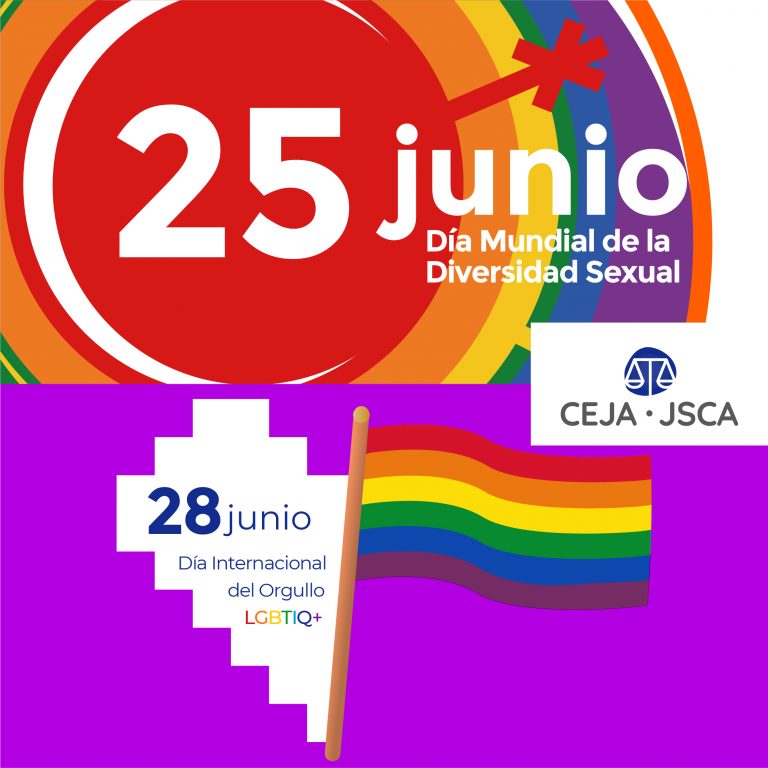
World Sexual Diversity Day and International LGBTIQ+ Day, which were celebrated on June 25 and 28, respectively, commemorate the Stonewall riots that took place in June 1969, launching the modern movement for the rights of lesbian, gay, bisexual, transgender, intersex and queer people.
Since then, this movement has made important progress towards the recognition of the human rights of members of the LGBTIQ+ community. The Inter-American Court of Human Rights has been categorical over the past few years, stating that no rule, decision or practice of internal law, whether by state officials or private entities, may diminish or restrict the rights of a person based on their sexual orientation in any way.[1] The Court also has recognized the historical and cultural discrimination to which these groups have been subjected.
However, rules and practices that discriminate based on sexual orientation, gender identity and/or gender expression persist in the region. In regard to the rules, for example, the Observatory on Civil Conflict and Access to Justice (OCCA) has found that some countries still have regulations on marriage that prevent that connection from being formed between individuals of the same sex, though some do recognize other ways of forming a family. While this is positive in terms of opening society up to new ways of creating a family such as civil unions in Chile or stable unions in Brazil, it does not solve the problem in terms of the principle of equality, as those institutions do not grant the same rights.[2]
In this sense, the persistence of a limited interpretation of the concept of family subject to the marriage bond as a primary legal institution can result in the exclusion of those who do not align with the stereotypical models legally imposed on those bonds, which negatively impacts the exercise of their rights. As such, as OCCA has stated, the duty to protect rights from a perspective of rights and the opportunity to change case law and other criteria makes the legal consecration of these prerogatives necessary.[3]
In regard to the justice system, the IACHR has referred to the specific barriers to access that LGBTIQ+ people face, such as lack of adequate treatment and services, being subjected to negligent and prejudicial attitudes, stereotypes, lack of specialized legal counsel programs and discriminatory attitudes on the part of judicial officials and operators.[4]
It is important to consider the negative effect that these obstacles can pose for LGBTIQ+ people, as they are exposed to high rates of violence and discrimination and are thus more vulnerable. Two of the barriers that they face are of particular importance:
- Inadequate treatment from justice system operators, such as the persistence of prejudices against LGBTIQ+ people, which can lead operators to find their complaints to be less credible, as well as other inadequate treatment or even harassment.
- Lack of legal aid programs with trained professionals: Legal assistance and representation are essential elements for access to justice. As such, their absence may dissuade victims from filing complaints.
Both obstacles reveal the need for ongoing training for justice system operators. States and institutions must commit to making progress on increasing awareness and training of justice system operators so that they are clear on the key concepts or regulatory changes in this area. It is also necessary to raise awareness about the discrimination and violence that LGBTIQ+ people face as a structural phenomenon and to set as a goal the eradication of prejudices within the justice system.
On World Sexual Diversity Day and International LGBTIQ+ Pride Day, JSCA reiterates its commitment to the gender perspective and human rights approach and calls on justice system institutions and operators and anyone who participates in these systems to be part of the change that incorporates the gender perspective into legal work and eradicates discrimination on the basis of sexual orientation, gender identity and/or gender expression.
[1] I/A Court HR. Case of Atala Riffo and Daughters v. Chile. Merits, Reparations and Costs. Sentence dated February 24, 2012. Series C No. 239, paragraph 91; I/A Court HR Case of Flor Freire v. Ecuador. Preliminary Objection, Merits, Reparations and Costs. Sentence dated August 31, 2016. Series C, No. 315, paragraph 118.
[2] OCCA. (2019). Conflictividad civil y barreras de acceso a la justicia en América Latina. Informe de relaciones de pareja y familias.
[3] OCCA. (2018). Conflictividad civil y barreras de acceso a la justicia en América Latina. Informe de vivienda y tierras.
[4] I/A Court HR. (2015). Violencia contra personas Lesbianas, Gay, Bisexuales, Trans e Intersex en América. OEA/Ser.L/V/II. Rev.2.Doc. 36. Our translation.
